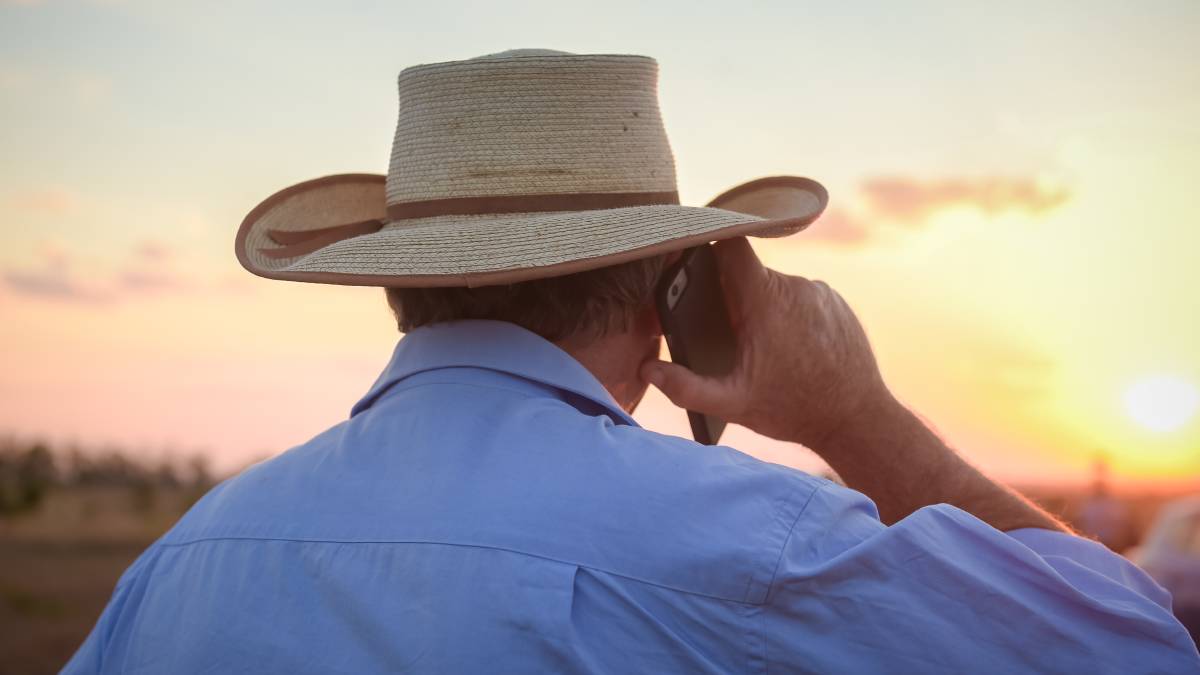
by Shan Goodwin
FOR all the challenges lockdowns have delivered, one of the upshots has been those in the bush now have access to more mental health and wellbeing services than they ever have before.
At the same time, acceptance of the vital need to look after mental health in farming communities has never been stronger.
Still, farmers wait far too long before seeking help.
These are some of the insights to come from those at the forefront of delivering health services to farming communities at a recent beef industry online event.
Initiated by the Australian Beef Sustainability Framework’s consultative committee, the webinar aimed to highlight current trends in farmer wellbeing and offer priorities for initiatives moving forward.
Dr Tim Driscoll, from the Outback Mental Health team at the Royal Flying Doctors Service, said access to Telehealth through Medicare had been a remarkable advancement for those in the bush.
“There is really nowhere now where you can’t get support and the wait times are not large,” he said.
“As a result of COVID, we are seeing how effective video conferencing is as a way of developing great therapy models that work well.
“What we have learnt is that people get the same benefit over a video conference as they do face-to-face.
“If you’re in a rural area, you now have access to a much wider pool of therapists – one of the big problems previously was those in the bush were stuck for options.”
Dr Driscoll did say, however, that farmers were still waiting far too long to seek help, for both mental and physical health issues.
And a key point, particularly with mental health, was not to give up if the first therapist wasn’t a good fit, he said.
“Think of it like a haircut – if you get a bad one it doesn’t mean you never have another haircut, you just find a new hairdresser,” he said.
“You want to make sure you are getting the right service.”
The best starting point was a GP, who could provide a suitable recommendation so it’s not ‘hit and miss’, he said.
Alternatively, Lifeline is a great service – 131114, it’s 24/7 and they can link you with other services in your area.
Pip Job, who runs a resilience program with the NSW Department of Primary Industries, said mental health was now far more a part of the conversation than ever – the community stigma had been well addressed.
“It we reflect back to the millennial drought, we have come so far in communicating the importance of looking after mental health,” she said.
“I’ve never heard more people, in particular men, talk about how they are feeling and reach out to mates to ask are they ok, and actively seek support.
“We’ve had some very challenging circumstances and compounding situations in the past couple of years so farming people are experiencing a lot of stress. But they are seeking help in how they can address that.
“People are able to articulate when they are feeling stressed and when they are burnt out – the language of mental health is excellent among our community at the moment.”
Building resilience
Resilience was the ability to cope with unexpected changes, Ms Job said.
“You can’t prevent difficult times and adverse events from happening – resilience is the ability to recover,” she said.
“What’s important is the lessons you learn – what will we change in the future, what will we continue with, how can we use this experience as a growth mechanism to mitigate risk in the future.”
Family units that have improved communication and decision making processes seem to express stronger levels of resilience, she said.
Agrisafe clinician with the National Centre for Farmer Health Morna Semmens said many farmers were struggling with home schooling routines.
And a key issue on the workplace safety front was the implications of more children on farms unsupervised, she said.
North Australian Pastoral Company general manager Stephen Moore said farms were a unique environment and producers faced the highest risk to life across the industry.
Producers were managing plant, chemicals, noise, dust, sun exposure, animals and, often, solitary or remote location work.
Studies had shown producers and lot feeders were above average in life satisfaction ratings, he said.
“Many farmers find the work they do rewarding and fulfilling. However, they also face many pressures that are out of their control such as drought, natural disasters and trade shocks,” Mr Moore said.
“When prolonged, these pressures, coupled with the isolation of rural life, can have a real impact on the mental health and wellbeing of farming families and this has been even more relevant in the midst of COVID.”
Dr Driscoll said good basic lifestyle factors were the pillars of mental health.
“Sleep, exercise, diet and social connection makes a huge difference,” he said.
“A lot of time what you’re doing with someone who is struggling is getting those things back on track.”
The story Lockdown’s upshot for bush health first appeared on Farm Online.
|
|